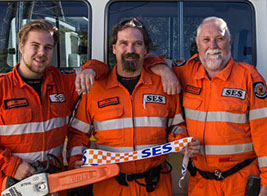
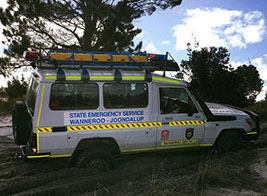
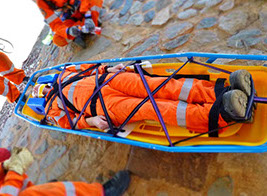
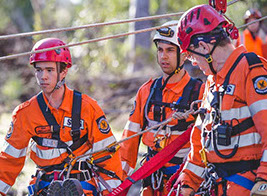
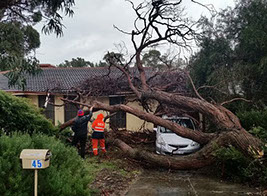
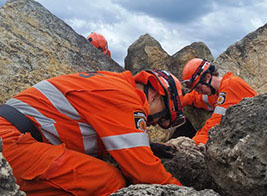
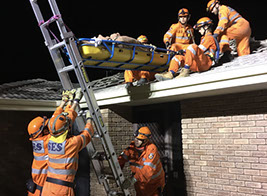
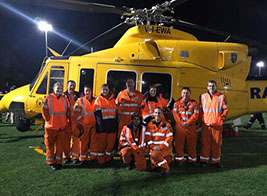
-crop-u2845.jpg?crc=140939071)
JOINING WJ-SES
State Emergency Service Volunteers are ordinary people who do extraordinary things for their community.
There are positions in State Emergency Service (SES) units for people from all walks of life, with all types of talents.
The SES is focused on ensuring that Western Australian communities can cope with emergencies.
It has the lead role in managing the State's actions for floods, cyclones, storms, earthquakes and tsunami threats as well as assisting other agencies in their roles.
SES functions are:
- Support, train and equip an effective volunteer based emergency service.
- Be a 'hazard management agency' for flood, cyclone, storm, tsunami, and earthquake.
- Be a 'combat agency' for land search, vehicle rescue (in specified areas), vertical rescue, cliff and cave rescue.
- Support emergency management activities at state, regional and local level.
- Act in support of the police in tasks acceptable to the volunteers but excluding those where it is likely that offenders will be present.
- When requested by police, SES volunteers search for missing people on foot, on horseback, with tracker dogs and by air.
- SES volunteers also perform challenging rescues in caves and on cliffs.
- In some areas of the state, SES volunteers do the difficult job of freeing people trapped in vehicles after road crashes.
A reasonable degree of physical fitness is required in certain circumstances for field operation, positions can be found to suit most applicants.
Training
The SES delivers customised training to groups and individuals. Information-based sessions are normally run indoors using a variety of training aids and methods. Skills-based sessions are delivered in a safe, realistic environment, often outdoors, using equipment and procedures identical to those encountered on-the-job.
The training includes rescue skills, first aid and casualty handling, map reading and navigation, communications, operations, leadership and additional specialised skills.
The SES is obliged to provide competent, qualified Trainer/assessors to conduct training. Trainers/assessors hold nationally-recognised qualifications and maintain competence in the subjects they deliver.
Most units train once a week and conduct, on average, a weekend exercise once every two to three months.
After participating in training, SES volunteers can undertake many roles including:
- Cyclone and flood response
- Cliff / cave rescue
- Road accident rescue (in specified areas)
- Air search observation
- Land search and rescue
- Storm damage relief
- Tracker dog handling
- Mounted search
- Communications
- Management of the emergency coordination centre using computer systems
Benefits to training as a SES volunteer
- develop new skills and knowledge
- apply existing skills and knowledge to different situations
- develop initiative
- develop leadership skills
- improve your interpersonal, communication and team working skills.
In general, volunteers need to be:
In good health and sound body and mind.
Of good moral character and habits.
A team oriented person and committed to serving their community.
And you are over 18 years of age and preferably have a drivers license.
If the idea of a 3am call out in the pouring rain
to climb on a strangers roof excites you
then contact our recruitment officer at
Email: recruiting@wjses.com.au
Remember that SES volunteers typically head out into the wind and the rain and the cold as everyone else is getting comfortable for the night.